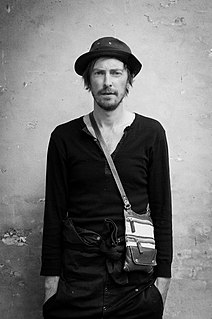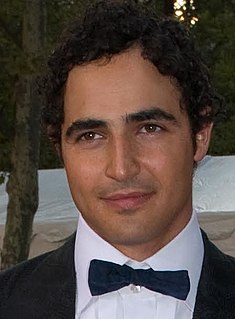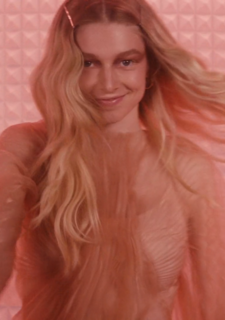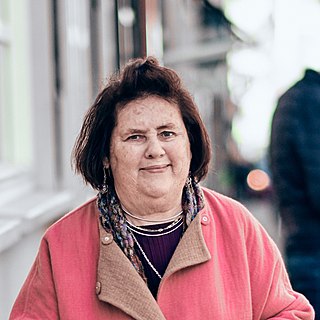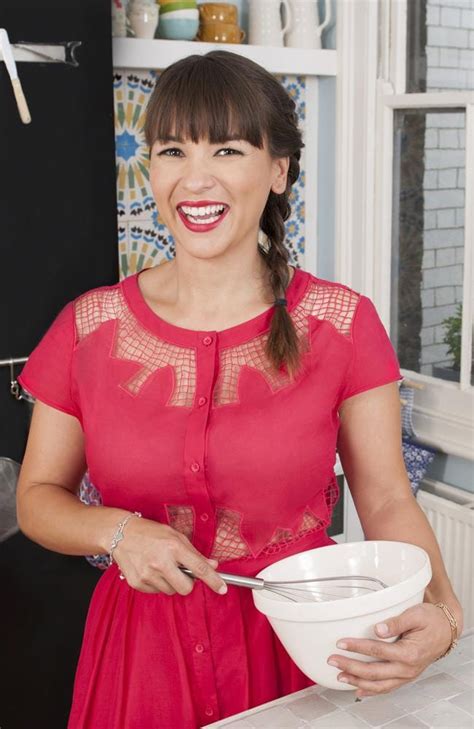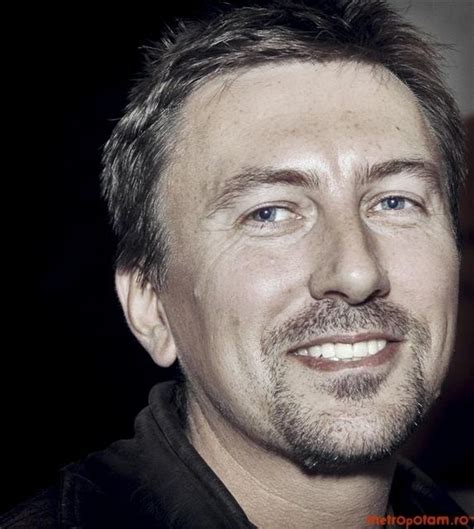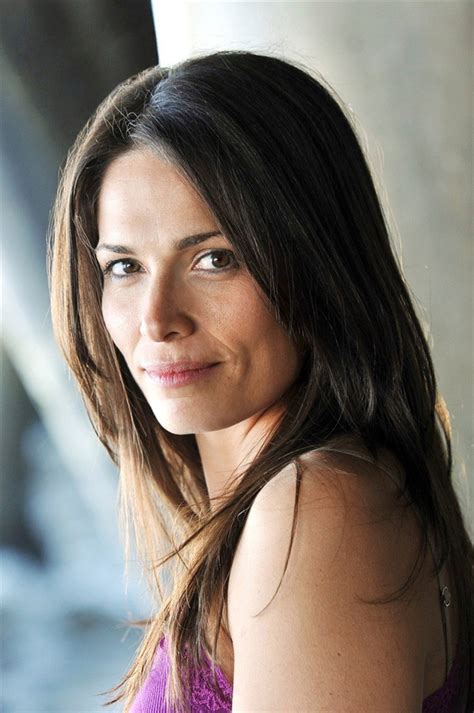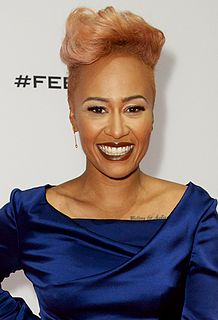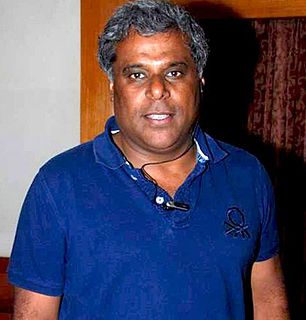A Quote by Henrik Vibskov
I was educated in London at Central Saint Martins and had this whole thing about getting together with a lot of international students. Twenty-three languages were spoken during our lunch breaks! The school was very open minded, you could do whatever you wanted. Some people loved that freedom, others got lost. Gareth Pugh was a classmate, and so was Peter Jensen.
Quote Topics
About
Breaks
Central
Could
Do Whatever You Want
Educated
Freedom
Getting
Got
Had
International
Languages
London
Lost
Lot
Loved
Lunch
Lunch Break
Minded
Open
Open Mind
Open Minded
Others
Our
People
Peter
Saint
School
Some
Some People
Spoken
Students
Thing
Three
Together
Twenty
Very
Wanted
Were
Whatever
Whole
Related Quotes
I went through the workroom at Central Saint Martins in London, which is the most competitive workroom of a design school in the world. Very high creativity, very conceptual, very international, age-diverse and cutthroat - people who have master degrees reapplying into a foundation there is just wild to me to launch their careers.
First I went to a Jewish school, when I was very little. But when I was 12, they put me in a school with a lot of traditions, and they were educated people and they were talking about Greece and the Parthenon and I don't know what. All the kids, all the girls they had already seen that and knew that from their family, and I would say, "What are you talking about, what's that?" It's not my world. My grandparents were very well-educated people, but in the Jewish tradition. They knew everything about the Bible.
My children came out as individuals in their own right. They were not my products. They had their own characters and were very strong-minded. I gave them a lot of freedom when they were still very young. The one thing they got from me is morals. They would never betray anyone. They are really good people.
In the middle of this it was good to have some moments in which whatever was left of you could sit in silence. When you could remember. When the evidence that had gathered could be sorted. And it was a difficulty if another person imagined these moments were their property. Your life got sliced from two sides like a supermarket salami until there was nothing left in the middle. You were the bits that had been given away right and left to others. Because they wanted the piece of you that belonged to them. Because they wanted more. Because they wanted passion. And you did not have it.
Distinguish open-minded people from closed-minded people. Open-minded people seek to learn by asking questions; they realize that what they know is little in relation to what there is to know and recognize that they might be wrong. Closed-minded people always tell you what they know, even if they know hardly anything about the subject being discussed. They are typically made uncomfortable by being around those who know a lot more about a subject, unlike open-minded people who are thrilled by such company.
London is not just an international financial centre: it is also one of the most ethnically diverse places on earth. Three hundred languages are represented within its boundaries, and - as is true of some other English cities - more than half of London's inhabitants describe themselves as non-white.
I wanted to become an actor. I went to Guildhall School of Music and Drama, which is one of the main drama schools in London where you go when you are older. But I was doing the junior one when I was a kid. And some friends there had agents. I was fourteen and I was like, "I want an agent! It sounds awesome!" I had no idea what that was. I thought those guys looked like men in black. They were hanging around in suits all the time. So I luckily got a very good agent in London and started auditioning. And then when I was 16, I got my first film and I've been working ever since.
People, Reacher was certain about. Dogs were different. People had freedom of choice. If a man or a woman ran snarling toward him, they did so because they chose to. They were asking for whatever they got. His response was their problem. But dogs were different. No free will. Easily misled. It raised an ethical problem. Shooting a dog because it had been induced to do something unwise was not the sort of thing Reacher wanted to do.
